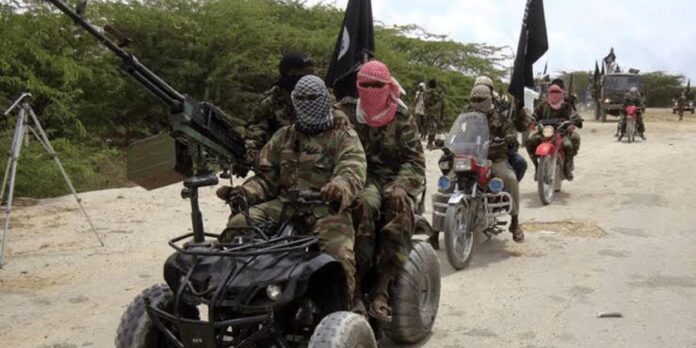The Presidency has revealed that the Northwest region of Nigeria recorded the highest crime rate in 2024, with a staggering 14 million cases documented.
This was disclosed on Wednesday by the Special Adviser on Policy Communications, Daniel Bwala, who cited the findings of a newly introduced survey called the Crime Experience and Security Perception Survey (CESPS).
The survey, conducted by the National Bureau of Statistics (NBS), is part of President Bola Ahmed Tinubu’s administration’s commitment to using data to guide governance and policymaking.
Shocking Crime Statistics Across the Regions
According to the CESPS report, the North Central region ranked second, with 8.8 million crime cases.
The Northeast followed with 7.9 million incidents, while the South-South recorded 7.7 million.
The Southwest had 6.9 million cases, leaving the Southeast with the lowest figure of 6.1 million crimes.
These numbers provide a grim picture of the security challenges facing the nation, but the Presidency noted progress in tackling crime.
Efforts to Combat Insecurity
Daniel Bwala praised the Tinubu administration for its efforts to curb insecurity, citing a “drastic decline” in kidnapping cases, banditry, and cattle rustling in the Northwest.
“The synergy between the military, paramilitary agencies, and private sector collaborators under the Renewed Hope agenda has yielded significant results,” Bwala stated.
He added, “Unlike the previous year, where crime was at an all-time high, 2024 has shown improvements in security operations across the country.”
Reduced Attacks in the Southeast
The Presidency highlighted a noticeable reduction in the activities of the proscribed Indigenous People of Biafra (IPOB) and its armed wing, the Eastern Security Network.
“The recent arrest of Simon Ekpa, a Finland-based provocateur accused of inciting violence in the Southeast, has significantly contributed to restoring calm in the region,” Bwala noted.
The report also pointed out that there have been fewer attacks on schools in the North compared to previous years.
Impact of Flooding on Food Security
While celebrating security improvements, the report acknowledged the challenges posed by natural disasters, particularly flooding in northern states like Borno, Adamawa, and Yobe.
The floods have disrupted agriculture, raising concerns about food security and inflation.
Bwala explained, “The nation relies heavily on the North for food production. The recent floods naturally led to higher food prices due to reduced agricultural output.”
However, the Tinubu administration was quick to respond to the crisis, distributing 2.1 million bags of fertilizer to farmers and approving N30 billion for Federal Universities of Agriculture to promote mechanized farming.
Federal Government’s Food Intervention Plans
In addition to emergency food aid, the Tinubu administration has partnered with the World Bank to invest $600 million in repairing 200,000 kilometers of rural roads.
“This initiative will ease the transportation of food products from farms to markets, addressing food insecurity in the long term,” the Presidency stated.
Truckloads of grains and rice have also been distributed across the 36 states as part of efforts to alleviate hunger and reduce inflation.
Economic Milestones Amid Debt Challenges
Turning to the economy, the Presidency highlighted a reduction in the country’s debt-to-equity ratio, which fell from 97:3 to 68:32 within a year.
“This was no small feat,” Bwala declared. “The Tinubu administration has shown courage and vision in redirecting the nation’s financial trajectory.”
He also noted the payment of N7 billion in foreign exchange arrears and an increase in foreign reserves to over $40 billion as signs of economic recovery.
The Presidency emphasized that these efforts reflect a government committed to improving the lives of ordinary Nigerians.
“We are laying the foundation for a more robust and thriving economy that will benefit everyone,” Bwala concluded.

